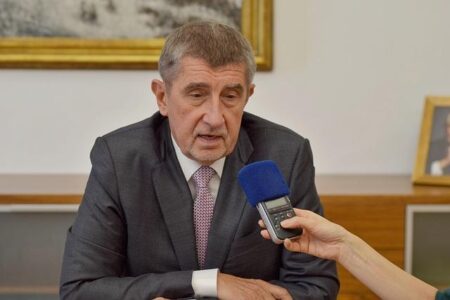Former French President Nicolas SarkozyŌĆÖs final appeal in his long-standing illegal campaign financing case has been definitively rejected, marking the end of a legal saga that has spanned nearly a decade. The ruling, delivered by FranceŌĆÖs highest court, upholds previous convictions against Sarkozy related to overspending during his 2012 presidential campaign. This decision not only cements the former leaderŌĆÖs legal troubles but also underscores ongoing concerns about transparency and accountability in French political financing.
Former French President SarkozyŌĆÖs Legal Battle Ends as Final Appeal is Dismissed
The highest court in France has definitively closed the chapter on former President Nicolas SarkozyŌĆÖs legal saga surrounding illegal campaign financing. The Court of Cassation dismissed his final appeal, upholding previous rulings that found Sarkozy guilty of exceeding legal spending limits during his 2012 re-election campaign. The verdict reinforces the judicial consensus that strict adherence to campaign finance laws is non-negotiable, regardless of oneŌĆÖs political stature.
Key aspects of the case include:
- Allegations that campaign expenses were significantly underreported.
- Involvement of SarkozyŌĆÖs associates in orchestrating opaque payment arrangements.
- Previous convictions for falsifying accounts and mismanagement of campaign funds.
The dismissal of the appeal marks the end of a protracted legal battle that has raised critical questions about electoral integrity in France. Officials and political analysts alike view this verdict as a precedent-setting enforcement of accountability standards for future campaigns.
| Year | Event | Outcome |
|---|---|---|
| 2012 | SarkozyŌĆÖs presidential re-election campaign | Exceeded legal spending limit |
| 2018 | Initial conviction | Guilty of illegal financing |
| 2024 | Final appeal dismissal | Case officially closed |
Key Details and Implications of the Illegal Campaign Financing Conviction
The rejection of former President Nicolas Sarkozy’s final appeal solidifies a landmark judicial decision in FranceŌĆÖs fight against illegal campaign financing. The conviction confirms that SarkozyŌĆÖs 2012 presidential campaign exceeded legal spending limits, with funds allegedly sourced through undeclared channels. This case highlights increased judicial scrutiny on political financing, signaling tougher enforcement and transparency requirements for future electoral contests. Authorities emphasize that this verdict will serve as a deterrent against potential financial misconduct in French politics.
Beyond SarkozyŌĆÖs personal legal ramifications, the ruling carries broader implications for political accountability in France. Key consequences include:
- Heightened monitoring of campaign expenditure across all political parties
- Stricter audit processes by the financial regulatory bodies
- Possible reforms to tighten electoral financing laws
- Increased public demand for transparency in political donations
| Aspect | Impact |
|---|---|
| Legal Precedent | Strengthened judicial resolve in high-profile corruption cases |
| Political Culture | Shift towards greater ethical standards |
| Public Trust | Potential increase due to accountability demonstrations |
Impact on French Political Landscape and Public Trust in Electoral Processes
The rejection of former President Nicolas SarkozyŌĆÖs final appeal serves as a pivotal moment, casting long shadows over the French political arena. This decisive ruling not only underscores the judiciary’s commitment to upholding electoral integrity but also amplifies concerns about the accountability of political figures. Analysts note that the case has intensified public scrutiny, fueling debates about the robustness of FranceŌĆÖs campaign finance regulations and their enforcement. Political parties must now reckon with the growing demand for transparency and ethical compliance, which could influence legislative priorities and electoral strategies moving forward.
Public trust, already fragile, faces further erosion as citizens grapple with the implications of this high-profile conviction. Surveys indicate a rising skepticism toward political institutions and electoral processes, which risks disengagement and apathy among voters. Key factors contributing to this shift include:
- Perception of unequal justice and elite immunity
- Concerns over the influence of money in political campaigns
- Demand for stricter oversight and reforms
| Aspect | Impact |
|---|---|
| Judicial Enforcement | Strengthened credibility of legal institutions |
| Political Behavior | Pressure on parties to enhance accountability |
| Voter Confidence | Heightened skepticism and calls for reform |
Recommendations for Strengthening Campaign Finance Regulations in France
In light of the recent ruling, it has become clear that the existing legal framework surrounding campaign financing in France demands urgent reevaluation. Ensuring transparency and accountability within political campaigns must be prioritized to restore public trust. Key measures should include:
- Strict limits on campaign spending with enhanced real-time reporting mechanisms.
- Independent oversight bodies invested with the authority to audit and sanction major donors and campaigns effectively.
- Clearer definitions of legal and illegal contributions to close loopholes that allow hidden or indirect funding.
- Improved whistleblower protections to encourage exposure of illicit campaign activities without fear of retaliation.
France’s experience underscores the complexity of regulating financial influence in politics. The table below compares key elements of campaign finance regulations in France with those of selected EU countries, providing a snapshot of areas for potential improvement:
| Country | Spending Limits | Disclosure Deadline | Independent Oversight |
|---|---|---|---|
| France | Yes, but enforcement varies | Post-election, delayed reporting | Yes, limited resources |
| Germany | Strict | Before election | Strong & independent |
| Sweden | No explicit limits | Quarterly | Strong with public accessibility |
| Italy | Yes, well defined | Before and after election | Independent, with sanctions |
Final Thoughts
The rejection of former French President Nicolas SarkozyŌĆÖs final appeal marks the conclusion of a lengthy legal saga surrounding allegations of illegal campaign financing. This decision not only reinforces judicial scrutiny over political campaign practices in France but also underscores the accountability of public figures under the countryŌĆÖs legal system. As the case closes, it leaves a lasting impact on the discourse around electoral transparency and political ethics in France.




